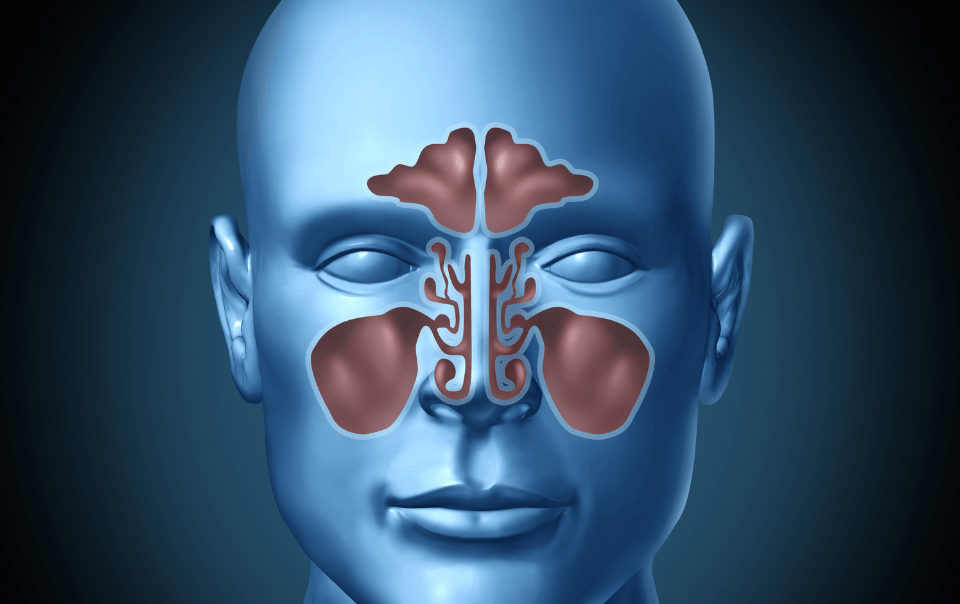When it comes to sinus problems, the last thing you should do is make assumptions about your condition or rush to use remedies without seeing a medical provider first. It’s important for you to know everything you can about chronic sinusitis, including when to get treatment for relief.
Use this guide to learn the answers to your most pressing questions about sinusitis.
1. When it comes to sinuses, what do you call a doctor specializing in them?
An ear, nose, and throat or ENT specialist is the professional to see about sinus problems. Dr. Alen Cohen at the Southern California Sinus Institute is a world-renowned nose and sinus specialist that is even more specialized than a general ENT and is called a “Rhinologist”. He is who you should see anytime you experience symptoms or issues involving your nose and sinuses.
2. How do doctors diagnose sinus problems?
To diagnose sinus issues, an exam is necessary. ENTs use a special, skinny instrument called an endoscope with a light attached to its tip to see inside the nose and sinus spaces. Depending on the circumstances, bloodwork and imaging procedures like a mini sinus CT scan in the office may be required before a formal diagnosis can be provided.
3. How do you know if your sinus issues are serious?
It’s never a good idea to rely on self-diagnosis when it comes to sinus symptoms. But you should keep track of your symptoms so you can see a sinus doctor in Los Angeles when necessary for relief. If you experience severe facial pain or swelling, headaches, nasal congestion or obstruction, a fever or a post-nasal drip, those signs indicate your sinus infection may be more serious than you realize and can benefit from ENT treatment by a specialist like Dr. Alen Cohen.
4. What is sinusitis?
Sinusitis is another name for rhinosinusitis. The condition is the result of inflamed or infected nasal tissues blocking the nostrils and sinus spaces inside the head. The longer these passages remain irritated, the likelihood of blockage due to swelling, impaired mucus drainage, infection, pressure buildup, and other sinus-related symptoms increase.
5. What types of sinusitis are there?
Sinusitis types are based on symptom frequency and duration, and are classified as one of the following four types:
- Acute is used to describe sinus symptoms and infections that last less than one month. Acute rhinosinusitis is often associated with the common cold, allergies, and mild upper respiratory ailments.
- Subacute sinusitis last longer than four weeks but less than 8-12 weeks.
- Recurrent rhinosinusitis causes multiple infections. Symptoms must last at least seven days, and infections must occur four or more times a year.
- Chronic sinusitis last 12 weeks or longer and cause persistent symptoms.
The sinus doctors in Los Angeles, Dr. Alen Cohen at the Southern California Sinus Institute, can provide an official diagnosis for all types of sinus problems and discuss suitable treatments.
6. How do I prove I have chronic sinusitis?
If you notice that your sinus symptoms never seem to go away for long, you may have chronic sinusitis. The only way to know for sure is to see an ENT to discuss your symptoms. You may need to undergo an exam and diagnostics so the ENT specialist can determine if the cause is an infection, structural problems like polyps or a deviated septum, or a combination of infection and nasal/sinus tissue irregularities. Treatment recommendations are based on the patient’s needs.
7. How is sinusitis treated?
In order to determine treatment options for patients with sinusitis, it’s necessary to identify the cause. While treatments for sinusitis vary, they typically include:
Self-care with natural remedies is ideal for acute sinus infections and mild symptoms. Medical attention is often required for those with symptoms that do not improve after increasing hydration, relying on saline nasal sprays, using a humidifier to help moisturize the air before it enters the nose, and utilizing other self-care measures for at least two weeks.
Medications are usually prescribed for patients with symptoms that persist or become worse after several days. When conventional non-medical measures don’t work, prescription nasal or oral steroids, antibiotics, and decongestants may be provided to help reduce or alleviate symptoms.
ENT sinus procedures are reserved for treatment-resistant chronic sinusitis or recurrent acute sinusitis and those experiencing severe symptoms or difficulty breathing through their nose constantly with significant impact on their quality of life daily. Medication and noninvasive measures are sometimes ineffective at alleviating inflammation and swelling of the sinus passages. To restore nasal/sinus drainage function, more invasive in-office procedures and even surgery are necessary. Many of these procedures are done through the nostrils.
Balloon sinuplasty is a non-surgical in-office treatment that is also minimally invasive. To open the airways and restore mucus drainage, a sinus doctor inserts a thin tube and a small medical balloon into the nostrils and inflates it and then removes it. Inflating the balloon widens the airways and creates tiny abrasions in the mucus membranes of the nostrils and sinus cavities, forcing the trapped mucus to drain.

To perform the procedure, the sinus specialist, Dr. Cohen, inserts an endoscope into the nostrils to visually inspect the sinuses and remove portions of the nasal tissues or bony structures that prevent sinus drainage. Because sinus infections have multiple causes, like a deviated septum or polyps, the MIGSS procedure may be combined with balloon sinuplasty,septoplasty, etc., to provide patients with optimal relief.
8. What are the common symptoms of sinusitis?
Sinusitis symptoms vary but generally include the following:
- Nasal congestion
- Headaches
- Facial pain or tenderness
- Coughing
- Sore throat
- Decreased smell or taste
- Postnasal drip
- Low-grade Fever
- Bad breath
- Concentration or Brain-fog issues
Because these symptoms are similar to many other medical conditions, it’s extremely important to see an ENT who is an expert in nose and sinus problems, like Dr. Alen Cohen, for testing and diagnosis.
9. What is the most common cause of chronic sinusitis?
Most cases of chronic sinusitis occur after mild upper respiratory ailments like the common cold, flu, or allergies. These mild illnesses trigger inflammation and swelling in the airways and nasal passages. Severe cases often obstruct the openings of the sinuses, causing mucus, bacteria and pressure buildup, and, eventually, infection. Other common causes of chronic sinusitis include structural irregularities of the nose, swollen adenoids, dental infections, facial/nose trauma, and excess smoke exposure.
10. What happens if chronic sinusitis goes untreated?
Sinus infections can spread to the brain, eyes and other areas of the body without proper treatment. Sinus infections can also become severe enough to cause cavernous sinus thrombosis. This condition causes life-threatening blood clots in the vessels of the head. Meningitis, a dangerous and potentially lethal condition that occurs when the brain and spinal cord tissues become inflamed and infected is also likely.
11. What can make sinusitis worse?
Some things can worsen sinusitis symptoms, such as dehydration, poor sleep, alcohol, smoking, mold, prolonged use of OTC decongestants, dry air, allergies, and poor air quality.
12. How do doctors drain sinuses?
To drain the sinuses, it’s necessary to treat the direct cause of inflammation, infection, or blockage. Usually, rest and remedies are effective at alleviating the symptoms. But for those with recurring or worsening sinus symptoms and severe nasal blockages, medication and ENT treatment are necessary.
Where Should Sinus Pain Sufferers Go for Treatment?
Sinus infections or inflammation are nothing to take lightly, especially if you experience repeat episodes or more severe symptoms. Please contact Dr. Alen Cohen in Los Angeles at the Southern California Sinus Institute at (818) 888-7878 to make an appointment for sinus treatment and relief.

